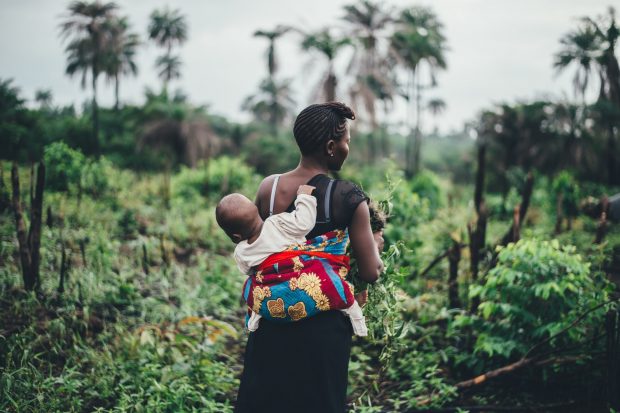Throughout Africa, women have a significant impact on society and the economy. In Sub-Saharan Africa, nearly 30% of very small, small, and medium-sized enterprises are owned by at least one woman. In fact, this contributes positively to employment and economic growth in the region.
The World Economic Forum estimates that by empowering women to participate equally in the global economy, nearly $28 trillion in GDP growth could be added to the global economy by 2025 (1). This is just one example of how important women are to society. However, the unfortunate reality is that women face numerous challenges. These challenges result in a disparity between their potential and actual impact on our communities.
Post-Youth Day and Youth Month in June 2021, we must acknowledge the role that young women will play in our future society. We need to recognize the numerous challenges and obstacles they have to overcome to achieve their full potential. It is a must, therefore, to identify and address the systemic and institutional barriers that prevent women from enjoying equal opportunities in society.
Healthcare as a systemic and institutional barrier
Women in Africa bear a disproportionately high share of the global burden of disease and death, particularly as it relates to maternal morbidity and mortality, with up to a 70-fold increased lifetime risk of dying during childbirth, compared to women in Europe (WHO, 2021). Furthermore, women in Africa account for more than half of deaths of women worldwide due to communicable diseases, and nutritional deficiencies (2). Illness is both a cause and an effect of women’s disempowerment. It compounds the cycle of disempowerment and poverty among African women.

Photo by Annie Spratt on Unsplash
The high rates of intimate partner violence and sexual assault experienced by women across the continent can be directly attributed to the patriarchy in our society. Patriarchy has a significant impact on women’s social and health statuses. It leads to reduced socio-economic achievement, substantial physical injury, and inestimable emotional and psychological harm.
Unfortunately for many women, the systemic barriers preventing access to healthcare aggravate poor social circumstances. They also perpetuate a vicious cycle of ill health, poor access to education, increased maternal morbidity, and a heavy socioeconomic burden. Urban-rural inequities further exacerbate disparities in access, cementing the institutional barriers that hinder the progress of equality for many women. Ensuring education, access, and choice in healthcare is essential for allowing women equal opportunities in society.
Unlocking women’s potential
African women have been a pillar of strength in families and communities. Therefore, the need to address their healthcare barriers is urgent and requires coordinated multisectoral action. We must leverage novel ideas and affordable technology to meet the healthcare needs of all women. Regardless of if it is access to health education, access to safe and efficient healthcare facilities, or access to appropriate services and therapies that address the physical and mental well-being of women and their families.
Improving women’s health

Improving the health of women translates directly into greater productivity and will generate significant economic gains. By virtue of women not only being active in the workforce, but also being caregivers, and healthcare decision-makers in the family, ensuring their health translates into a healthy labour force, and a healthy nation. By addressing root challenges such as maternal health, safe and effective contraception, and affordable oncology treatments, women can have a healthier future and face fewer obstacles that limit their potential.
In order to fundamentally reduce poverty, inequality, and advance the rights of women and girls, we must guarantee equal access to healthcare services. We need to ensure that these services respond to the specific needs of women. There must also be extended coverage of existing programs through investment and innovation to prevent life-changing events that reduce life expectancy. If not, they should at least diminish or even derail lifetime achievement.
The time has come to adopt a multi-sectoral approach in dealing with women’s health issues. We need to advocate for improved availability, accessibility, and affordability of healthcare services. These services need to respond to the specific needs of women to ensure a lifetime of health and wellbeing.
About the Author

Dr Abofele Khoele, Organon South Africa MD
Dr Abofele Khoele is the Managing Director of women’s healthcare organisation Organon, in South Africa and Sub-Saharan Africa. He is an experienced Executive Director with a demonstrated history of working in the pharmaceuticals industry. Skilled in Pharmaceutics, Business Planning, Coaching, Vaccines, and Oncology.
Dr. Khoele is a graduate of the University of Cape Town, MBChB. He also has an MBA from the UCT Graduate School of Business and an MPH from the University of Johannesburg.



![women [longevity live]](https://longevitylive.com/wp-content/uploads/2020/01/photo-of-women-walking-down-the-street-1116984-100x100.jpg)










